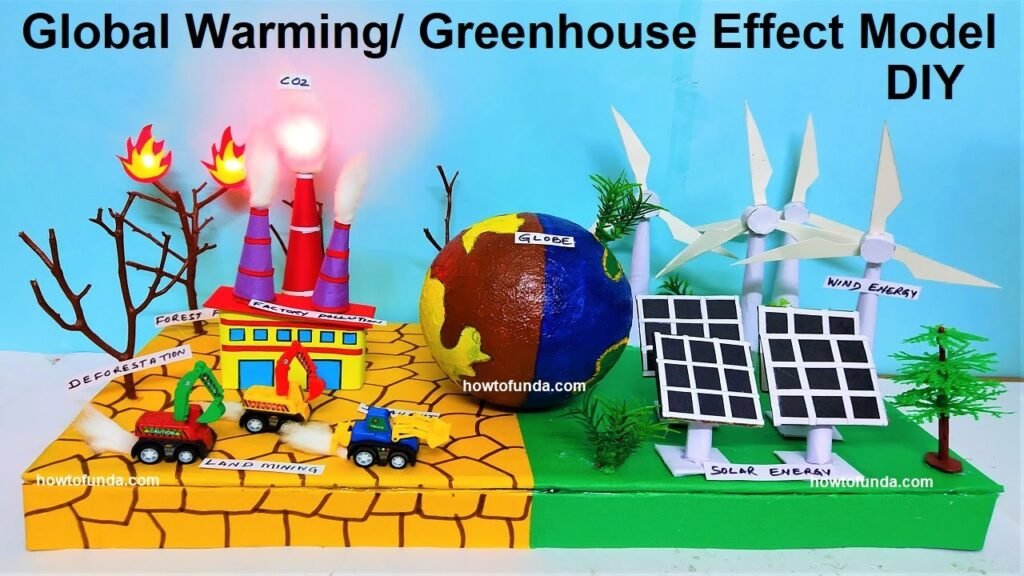Introduction:
Ladies and gentlemen, esteemed judges, and fellow seekers of knowledge and solutions,
Today, I stand before you to unravel the complex and critical topic of global warming.

As we gather here at this science exhibition, let us embark on a journey to understand the science behind global warming, its far-reaching consequences, and the imperative to act with urgency and purpose.
The Warming Planet:
Global warming is the long-term increase in Earth’s average surface temperature due to human activities, primarily the release of greenhouse gases into the atmosphere.
It is not merely a statistical figure but a palpable reality reshaping our world.
The Science Behind Global Warming:
- Greenhouse Effect: At the heart of global warming is the greenhouse effect. Certain gases, such as carbon dioxide (CO2) and methane (CH4), trap heat from the sun in the Earth’s atmosphere, preventing it from escaping into space.
- Human Activities: The burning of fossil fuels, deforestation, industrial processes, and agriculture release vast amounts of greenhouse gases into the atmosphere. This enhanced greenhouse effect intensifies the natural warming of the planet.
- Consequences: Global warming results in rising temperatures, melting ice caps, sea-level rise, more frequent and severe heatwaves, altered weather patterns, and disruptions to ecosystems.
The Consequences of Global Warming:
- Extreme Weather: Global warming fuels more frequent and intense extreme weather events, such as hurricanes, droughts, floods, and wildfires, endangering lives and livelihoods.
- Melting Ice and Rising Seas: Rising global temperatures cause polar ice caps and glaciers to melt, contributing to rising sea levels, threatening coastal communities, and causing saltwater intrusion.
- Biodiversity Loss: Changing temperatures and habitats lead to species extinction and disrupt ecosystems, affecting agriculture and food security.
- Human Health: Increased heat and changing disease patterns pose health risks, while air pollution worsened by warming exacerbates respiratory problems.
The Urgency of Action:
The science is clear, and the consequences are dire. We have a moral obligation to address global warming. Urgent action is needed on multiple fronts:
- Mitigation: Reduce greenhouse gas emissions through renewable energy, energy efficiency, and sustainable land use practices.
- Adaptation: Build resilience to the changes already underway through improved infrastructure, disaster preparedness, and sustainable agriculture.
- Conservation: Protect and restore forests, wetlands, and marine ecosystems that sequester carbon and preserve biodiversity.
- Advocacy: Advocate for strong climate policies and international cooperation to combat global warming.
- Individual Actions: Reduce your carbon footprint through energy conservation, sustainable transportation, and responsible consumption.
Conclusion:
In conclusion, global warming is not an abstract concept; it is a stark reality reshaping our planet. It is a crisis that transcends borders and requires global cooperation and individual responsibility. The consequences of inaction are far-reaching and devastating.
As we contemplate the science of global warming, let us be inspired by the power of collective action and innovation. Let us embrace the responsibility to protect our planet for current and future generations. The time for meaningful change is now.
Thank you for joining me on this journey to understand the science and significance of global warming and the critical role we all play in addressing this pressing global challenge.

